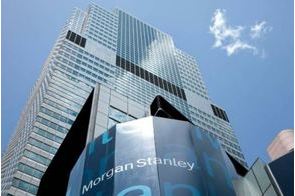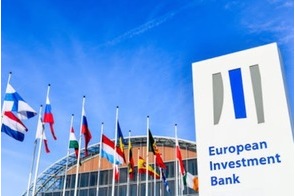Africa lacks investment to achieve SDGs – Standard Chartered study

Summary
Survey finds only 3 per cent of the over $50 trillion global AUM is invested in Africa.
A new study by Standard Chartered has shown that global investors' low-risk appetite for investing in Africa puts the world's chances of meeting the United Nations Sustainable Development Goals (SDGs) by 2030 at risk. The report, released on Tuesday, also shows the COVID-19 pandemic has further widened the financing gap on the continent.
Titled "The $50 Trillion Question," the study is based on in-depth interviews with a panel of asset managers from the world’s top 300 investment firms, with total assets under management (AUM) of more than $50 trillion (the equivalent to half of global gross domestic product).
Standard Chartered said it set out to investigate how investors are using their assets to help meet the SDGs. According to the London-headquartered banking group, how the asset managers choose to invest will have a huge impact on the ability to solve some of the world’s biggest problems.
Findings from the survey show only 3 per cent of the over $50 trillion AUM is invested in Africa. Meanwhile, almost two thirds (64 per cent) of the panel’s AUM is invested in the developed markets of Europe and North America. Asia, which includes several developed markets, takes 22 per cent, while just 2 per cent, and 5 per cent of the assets are invested in the Middle East and South America, respectively.
The reason for the massive shortfall in investment in Africa and other emerging markets, according to the research, is the risk posed by those markets as more than two-thirds of investors believe emerging markets are high-risk, compared to 42 per cent who believe the same for developed markets.
Furthermore, 53 per cent of the panel said returns on investment in Africa are low or extremely low. Also, almost three in five investors (59 per cent) said they are deterred from investing on the continent because they lacked in-house specialist teams.
The investors, who were interviewed between July and August 2020, said COVID-19 may have made it even harder for emerging markets to get the investment they need. About 70 per cent of the investors noted that the pandemic has widened the capital gap further.
Standard Chartered said only 13 per cent of the assets managed by the respondents in the survey is directed towards SDG-linked investments. The investors pointed to regulatory changes, favourable tax treatment, evidence of higher returns, better data for measuring impact, and increased demand from retail investors as the top five factors that might incentivise more SDG investment.
"There is no single answer to the $50 Trillion Question, but it is evident that investors need to expand their focus beyond developed markets,” said Sunil Kaushal, Standard Chartered’s Regional CEO, Africa and Middle East. “Africa, and emerging markets generally, offers investors a unique opportunity: strong returns combined with the chance to have a significant, positive impact in the long term.”
Kaushal also argued that while there is huge investment opportunity to achieve the SDGs in Africa, a significant surge in private-sector investment – alongside public investment and commitments – is required to bridge the investment gap on the continent. A 2019 report by the African Development Bank (AfDB) estimates Africa’s financing requirements at between $130 billion and $170 billion annually.
Despite showing the low level of SDG-linked investments, the Standard Chartered report points to a growing focus on sustainability, with 81 per cent of investment firms now taking a disciplined approach to environmental, social and governance (ESG) investment.
However, the bank said this is not translating into investment in the SDGs. About 55 per cent of the investors still claimed the SDGs are not relevant to mainstream investment and 47 per cent said investment in the SDGs is too difficult to measure. However, one fifth of investors admitted that they were not aware of the SDGs.
Related
-
IFC invests $11.5 billion for Africa’s green transition and job creation
IFC said it made $11.5 billion in investments between July 1, 2022, and June 30, 2023, across 40 countries, the ... -
Two-thirds asset managers pursue sustainable investing – Morgan Stanley
The surge in sustainable investment activity has been spurred by rising investor demand and media coverage.
-
EU financiers parley on sustainable recovery in capital markets
In June, the ESM published its Social Bond Framework to enable it issue social bonds.










